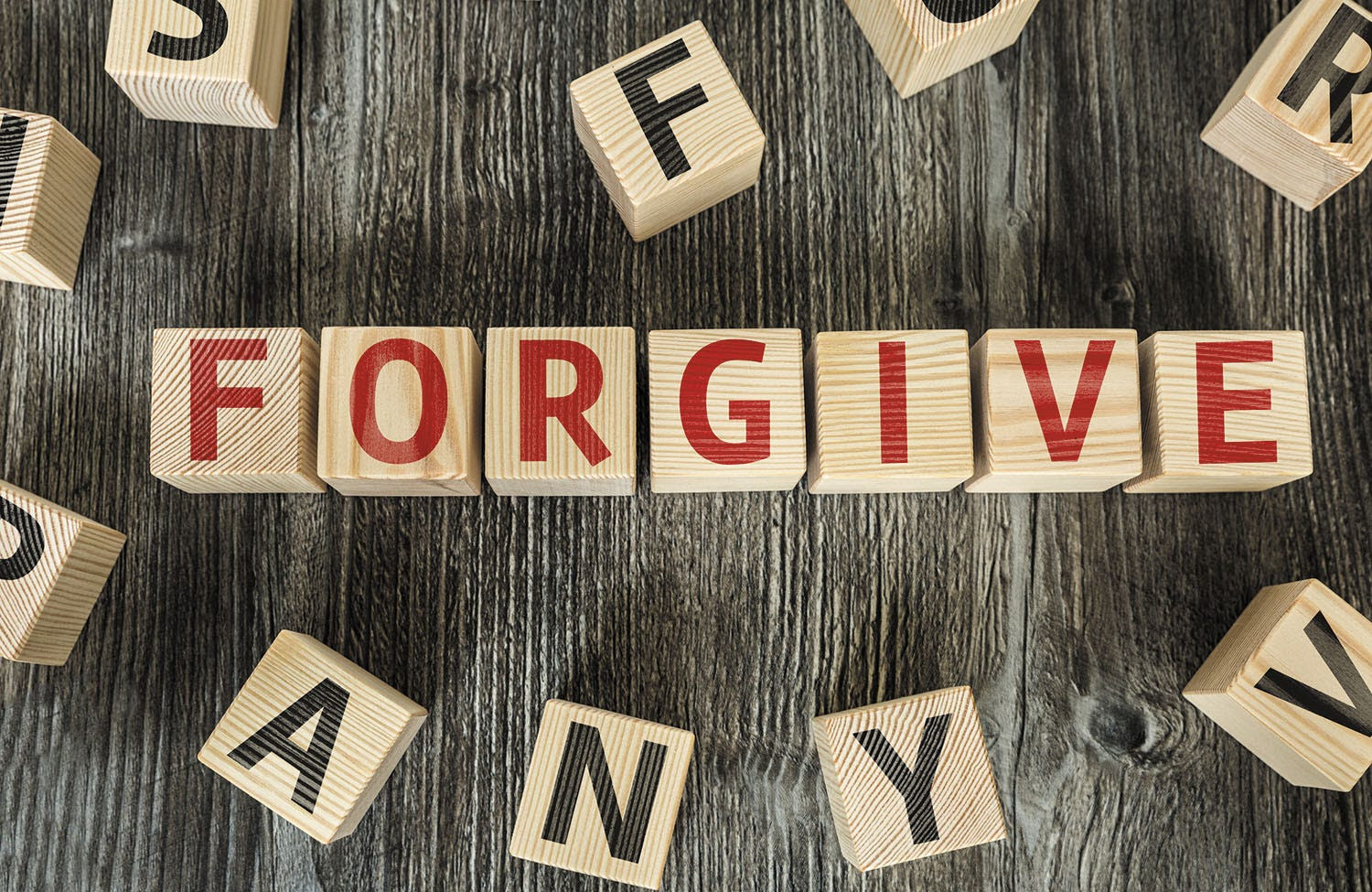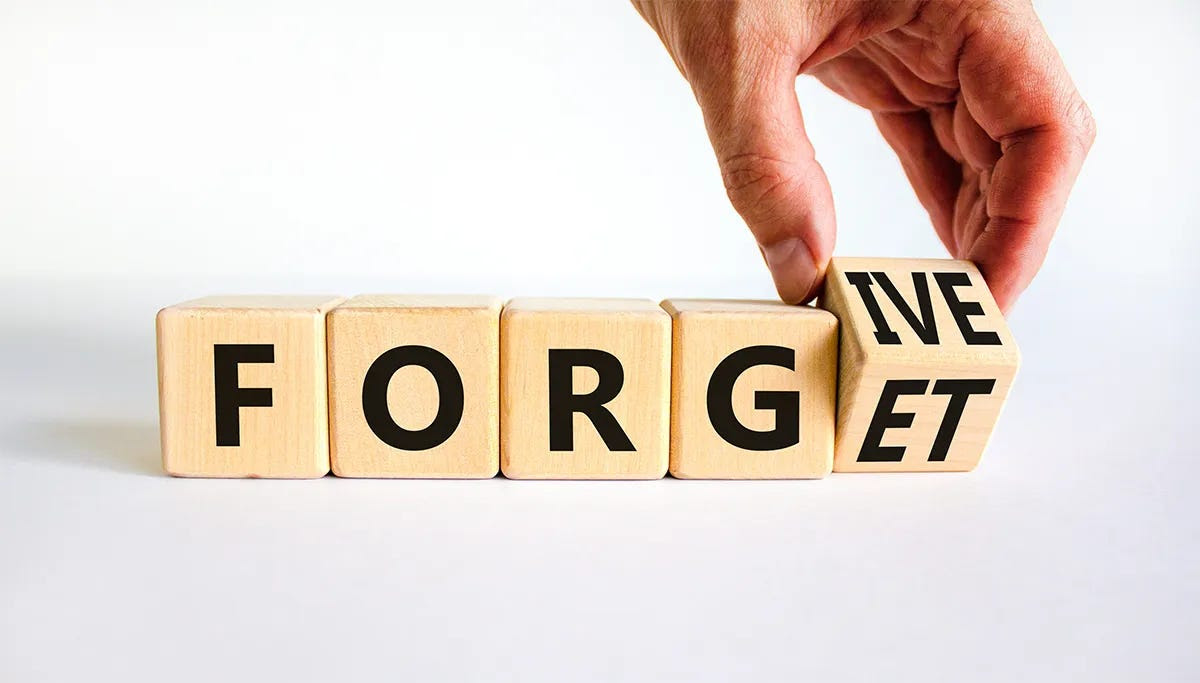“Do you know what forgiveness means? It’s a decision we make to release a person from the feelings of anger we have against them.”
These are the words of Fred Rogers. Yeah, as in “Mister Rogers.”
You know what else Fred said? Try this on for size: “The only thing evil can’t stand is forgiveness.”
It might be the second-greatest quote about forgiveness I’ve ever heard. Do I really need to tell you the first-greatest?
Just in case: “Father, forgive them, for they know not what they do.”
So, let’s back up and talk about offering and asking for forgiveness.
We cannot control how everything plays out, but we can control our part in it. This means accepting those seemingly inevitable moments when we will be in a position to either receive or deliver a sincere, heartfelt apology.
The 4 Elements of an Authentic Apology
1. Request Permission to Apologize
This is the forgotten first step. Regardless of how severe (or not) you perceive your transgression to be, you do not have agency when it comes to forgiveness. The wronged person has every right to reject any apology attempt until they are ready.
2. Take Full Responsibility: Show Remorse
“I’m sorry you feel that way” is not remorseful. You don’t apologize for someone else’s feelings. “If anyone was offended, I apologize”? Again: zero contrition. Hold yourself accountable. Let them know that you realize you hurt them. Show regret. Express guilt. Clearly articulate why you are apologizing.
3. No Excuses: Promise to Make Amends and That You Won’t Do it Again
It’s time to put your remorse into an actionable context. That means NO excuses. Communicate with the wronged person to learn how you can best make amends for your affront. Make up for a mistake and do the work to be certain it does not re-occur. Display your remorse in word and deed.
4. Formally Ask for Forgiveness
Like step #1, this one is often neglected. But forgiveness is a dialogue. After the first three steps have been satisfactorily completed, do not assume you’ve automatically been forgiven. Ask for forgiveness and be ready to enter into an open discussion of what that means. Be aware that it doesn’t always mean a reconciliation is imminent.
And speaking of forgiveness. With conflict on the rise and emotions in turmoil, you may also find yourself on the other end of an apology. Pro tip: That part of the process is not as simple as saying “Fine” or “It’s okay.”
5 Ways to Be a Forgiving Person
1. Understand It
Forgiving someone is not the same as condoning their actions. It also doesn’t mean things will or even can return to where they were. Forgiveness is your way to release yourself (and possibly others) from the unhealthy burden of anger and resentment.
2. Honor What You Feel
If you’ve been hurt, let yourself feel that pain. As the victim, you must work through this process before you can calmly address apologies and forgiveness.
3. Choose Your Words and Actions Wisely
Resist the urge to speak disparagingly to others about the person who hurt you. Perhaps more importantly, reject any thoughts of revenge. To be in the position to forgive requires us to eschew behaviors that stem from our reflexive urges.
4. Operate From a Place of Humility
How many times in your life have you messed up and had to face the music? How many more times will something like this occur? Keep this in mind when interacting with any person who has crossed you. Again, you don’t have to condone their actions but you can hold space to understand and forgive them.
5. Release the Need For Blame
An authentic apology has been offered. You have opted to accept it and forgive the other person. Now… let it go. The time for blame has passed. In fact, if you find yourself still holding a grudge, it is quite possible you’re the one who needs to do some serious introspection.
This brings us back to good, evil, and “Forgive them, Father.”
Check out the short clip above (2.5 minutes). Father Stu makes a good point. “Forgive us our trespasses as we forgive those who trespass against us.”
It’s a deal. You might even say it’s a covenant.
We want our debts forgiven. Cool. But whose debt are we forgiving? If this sounds too hard, if you’re stuck on who wronged you — especially since March 2020 — remember, this is a spiritual war. And, to come full circle, the only thing evil can’t stand is forgiveness.
We’ve got the blueprint. The covenant was offered a long time ago. Now, how ready are we to hold up our end and say “They know not what they do”?
This content originally appeared on Dissident Voice and was authored by Mickey Z..

